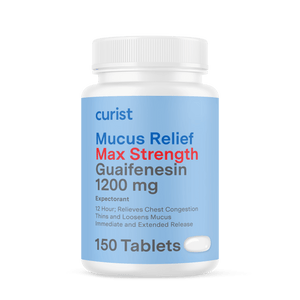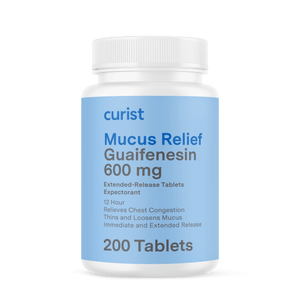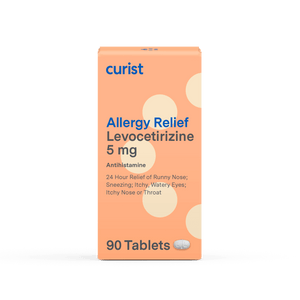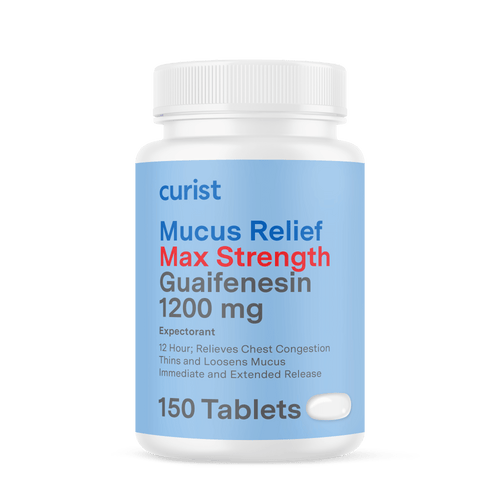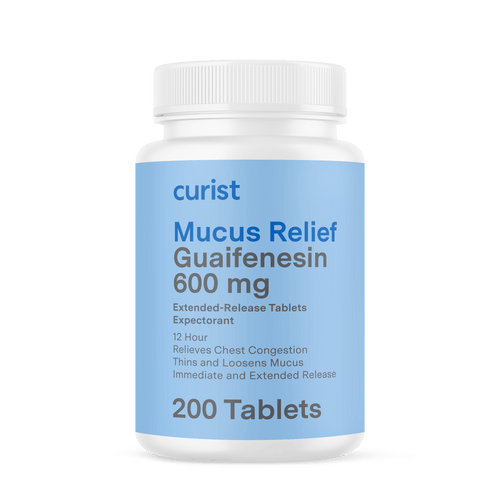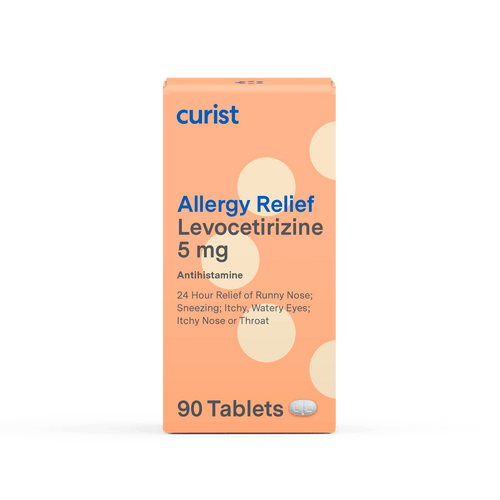by Audrey Anderson, The University of Texas at Austin College of Pharmacy
Curist delivers over-the-counter medicines to your door at a fraction of the price of traditional brands. We hope everyone stays safe and healthy during this time.
On the surface, the symptoms of common cold, flu, allergies, and COVID-19 may seem hard to tell apart. It is important to look at everything that is causing you discomfort because these ailments can cause similar symptoms. Considering all symptoms you have, as well as when they started and how bad they are, is helpful in distinguishing the likely cause of your symptoms.
Is my Cough from COVID?
Developing a cough is fairly common in people with a cold, flu, COVID-19 or seasonal allergies. The severity and length of time that you have had the cough can help you narrow down the cause. The cough from a cold normally doesn’t last more than 7-14 days and usually remains mild to moderate in severity. Certain individuals with seasonal allergies can also develop a cough when exposed to allergens, particularly if they also have asthma. COVID-19 and the flu can both cause a cough that can become severe. If someone is having trouble breathing or has persistent pain or pressure in the chest, they need immediate medical care. You can learn more about COVID-19 symptoms and emergency warning signs from the CDC.
Is my Headache from COVID?
Headaches are also a fairly common symptom to experience during colds, the flu, allergies, and COVID-19. Ask yourself what other, if any, symptoms you are experiencing. Is the headache similar in severity to what you’ve experienced in the past from colds or allergies? A more serious headache may be indicative of influenza or COVID-19; however, both of these infections can be limited to causing only mild symptoms.
Is my Runny, Stuffed Up Nose & Congestion from COVID?
A runny, congested nose is another symptom that can be caused by a cold, the flu, COVID-19, and allergies. If the nasal symptoms are accompanied by itchiness, like itchy eyes, mouth, nose, throat, or ears, you could be experiencing seasonal allergies. A runny nose caused by a cold normally starts about a day after a sore throat. As the cold progresses, the nasal secretions often go from clear and watery to green or yellow and become thicker before finally becoming clear and watery again. Influenza and COVID-19 can also precipitate a runny, stuffed up nose. The presence and severity of symptoms like a fever or body aches can help indicate if the nasal symptoms may be caused by something more serious than a cold or mild allergies.
Is my Sneezing from COVID?
Sneezing is often associated with a number of common ailments. Colds and, less frequently, the flu can cause sneezing. Allergies often cause bouts of sneezing when affected individuals are exposed to environmental triggers like pollen. If you suffer from allergies, ask yourself if your current sneeze seems similar to the type of sneeze normally caused by your allergies. If the intensity and quality of the sneeze is different, the cause of the sneeze may not be from your allergies. Although sneezing has been reported in a limited number of patients with COVID-19, sneezing is not a symptom that is commonly associated with the infection and does not currently appear on the CDC’s list of suspicious coronavirus symptoms. You can learn more about this topic in our blog Coronavirus and Sneezing.
Is my Sore Throat from COVID?
A sore throat is another symptom that can be caused by a cold, flu, allergies, or coronavirus. Allergies can cause an itchy, irritated sensation in the throat, but this itchiness is generally different from the type of sensation caused by a viral infection in the upper respiratory tract. Allergies can make the throat feel itchy, and sometimes irritated, but an itchy throat is often accompanied by itchiness in other places, like the mouth. In addition, the sore throat of a viral infection is often felt to be most painful when swallowing. In contrast, the itchiness from allergies is more constant and does not intensify when swallowing.
COVID-19 vs Flu: Symptoms & Treatments
Distinguishing the symptoms of the flu from those of coronavirus can be difficult. In fact, individuals with COVID-19 are often described as having “flu-like” symptoms. Both infections can cause symptoms that can present in a mild to severe range. In addition, individuals can also be infected with either virus without having symptoms and can spread their sickness to others unwittingly. Both viruses can cause symptoms such as fever, widespread body aches, fatigue, and headaches. Both viruses can cause gastrointestinal complaints such as nausea, vomiting, and diarrhea, although influenza is more likely to cause these symptoms in children than adults. Both infections can cause a cough and shortness of breath. Both infections could progress to pneumonia, which may become life-threatening. However, flu-like symptoms accompanied by a sudden loss or change in taste or smell appears to be more indicative of an infection with COVID-19 rather than influenza.
What are Common Symptoms Between COVID-19 vs Common Cold?
Symptoms from the common cold can also have considerable overlap with those of coronavirus. Though COVID-19 can cause more severe symptoms in immunocompromised populations, this coronavirus can also merely cause mild symptoms in some individuals that may mimic the common cold. More recent information indicates that COVID-19 can cause gastrointestinal symptoms like nausea, vomiting, and diarrhea. These symptoms are normally absent in individuals with the common cold. A cold normally follows a predictable course of symptoms that usually last about 7-14 days and include a sore throat, a runny, stuffed up nose, and a cough. You can learn more about the common features of a cold and how they compare to allergies in our Common Cold vs Allergies: Symptoms and Treatments.
COVID-19 vs Allergies: Symptoms, Similarities & Differences
Common symptoms caused by allergies that may overlap with those caused by COVID-19 are nasal congestion, a runny nose, headaches, and fatigue. Allergies may also cause an itchy, irritated throat or a cough in some individuals. However, there are some major differences in the symptoms caused by allergies versus coronavirus. Some of the biggest distinctions are the presence of a fever, chills, or body aches. These symptoms could be an indication that your symptoms are being caused by something other than allergies, like COVID-19. Another important symptom to consider is the presence of itchy eyes, nose, throat, mouth, or ears. Itchiness is typical of allergies but not of the coronavirus. Recently, gastrointestinal symptoms like vomiting and diarrhea have begun to be associated with COVID-19. Seasonal allergies are rarely associated with these types of symptoms. Read Allergies vs Coronavirus: How to Tell the Difference? for a more in depth comparison of these ailments.
What if I Think I Have Coronavirus and Can’t Tell if It’s Cold, Flu or Allergies?
The symptoms caused by a cold, the coronavirus, the flu, and allergies have similarities that can be hard to distinguish. It’s also possible to have more than one of these conditions at the same time. In addition, some of these symptoms may be caused by entirely different conditions or infections. However, if you think that you might be sick from the coronavirus, the CDC recommends that you stay home and contact your doctor, and consider getting tested for COVID-19.
Curist At-Home Treatments for Symptom Relief
At Curist, our mission is to make quality, affordable medicines available with the convenience of direct-to-your door shipping. Some of our most popular products are Curist Mucus Relief Maximum Strength and Curist Allergy Relief.




